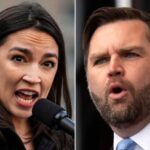

The U.S. economy grew at a blistering 5.2 percent annual pace in the third quarter, the government said Wednesday.
This was faster than the previous estimate of 4.9 percent, which was much higher than anticipated. Excluding the rebound from the pandemic, this is the fastest pace of growth in a decade.
The upward revision reflects an increase in government spending and business investment. Consumer spending was revised down as were exports.
This is the government’s second estimate of gross domestic product, the official government scorecard for the economy. In the second quarter, the government grew at a 2.1 percent annual rate.
Household spending rose at a 3.6 percent pace, down from the original estimate of 4 percent. Consumer spending has been surprisingly robust despite surveys showing consumer sentiment about the economy in the doldrums. Many economists think low levels of unemployment and excess savings left over from the pandemic are encouraging consumers to spend.
The personal saving rate was revised up to four percent from 3.8 percent. Disposable personal income grew 2.9 percent after an upward revision. Adjusted for inflation, real after-tax income rose 0.1 percent after a big upward revision of 1.1 percentage points.
After a previously reported decline, business investment was revised up to a 1.3% gain on the back of firmer outlays for structures. Housing was also stronger than initially reported.
Nominal GDP, which doesn’t take into account inflation, rose at a staggering 8.9 percent, revised up from the previous estimate of 8.5 percent.
Inflation-adjusted gross domestic income, an alternate measure of the growth of the economy, rose by a more modest 1.5 percent.
Some economists look at the average of GDP and GDI as a more accurate reflection of the state of the economy. This grew at a 3.3 percent rate in the third quarter.
Spending by the federal government grew at an annual rate of seven percent, revised up from the earlier estimate of 6.2 percent. Overall government spending, including state and local expenditures, rose at a 5.5 percent rate, up from the earlier estimate of 4.6 percent.
The economy is widely believed to have slowed in the fourth quarter. The Federal Reserve Bank of Atlanta’s GDPNOW indicates that data so far suggests the economy is growing at a 2.1 percent rate in the fourth quarter.




